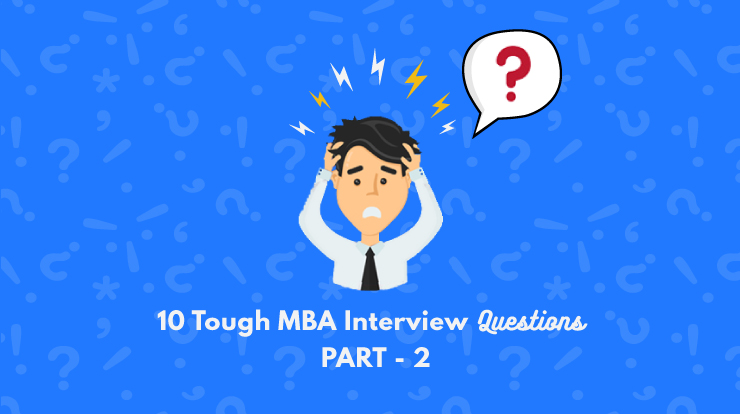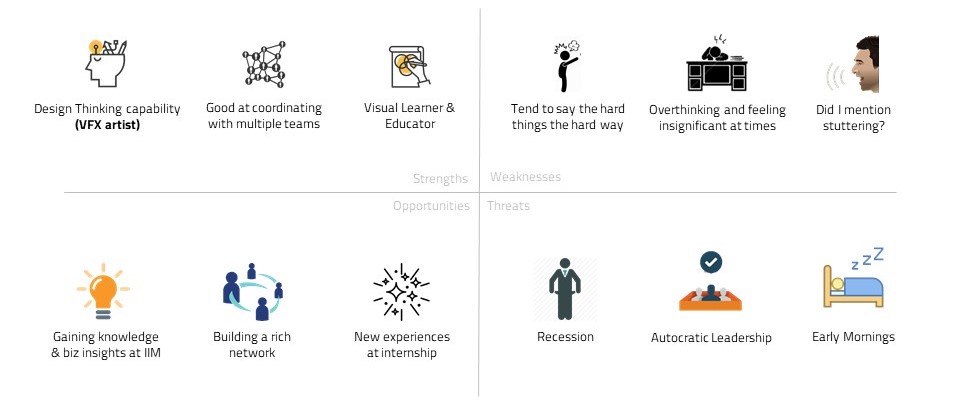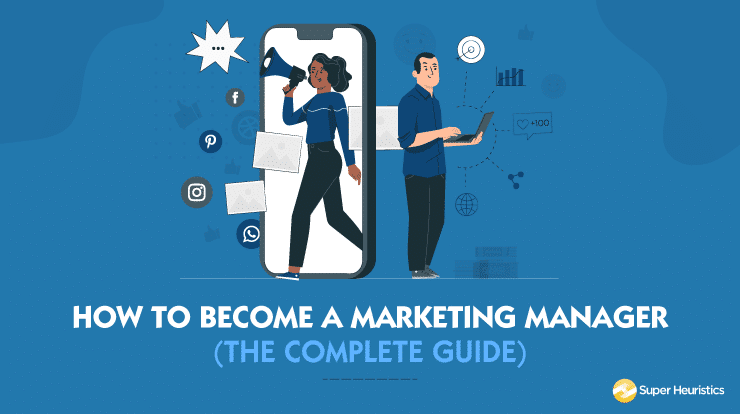
Since the time I published the first installment of this article, How to Answer Tough Interview Questions (Part 1), I have been overwhelmed by the emails that I have been receiving.
In that article, I listed down the first 5 of the 10 tough B-school interview questions. The questions because of which B-school aspirants always ask ‘How to answer tough interview questions?'.
Right now, while I am sitting in a library starting to type this article, I am surrounded by the best of the Marketing books. These are books on Branding, Positioning, Advertising, Marketing Management and what not.
The more I look at them right now, the surer I am getting that whatever methods I will suggest you for the next 5 tough interview questions have to come from the basic Marketing principles.
So, if you have your MBA admission interviews coming up soon, you must read this article. In this article, I will be discussing my unique opinion on how to tackle the next 5 MBA admission interview questions that people find tough.
What are the 10 Tough Interview Questions in MBA Interviews?
If you haven’t read the first part, I would suggest you to it. In the first part, I have discussed how to answer tough interview questions like
Q.2. Why not pursue a career in Engineering (or, whichever field of graduation yours is)?
Q.3. You’re a fresher why should we select you?
Q.4. Why do you have to do and MBA to build your startup?
Q.5. Why don’t you just join your family business instead?
In that article, I had also shared with you my Self Branding Journal which will help you in answering these questions better.
Let’s get back to finding the direction for the next 5 (and +1 bonus) tough B-school interview questions.
Important! Self Branding Journal for B-school Interviews
To be able to find the answers in the directions where I will lead you to, you will need this short journal that I have compiled for you. This Self Branding Journal will help you create a brand identity for yourself, pretty much like how marketers do for brands. And once to do that, all you need to is market yourself.
Q.6. What are your Achievements? (when you think you have none)
Here’s the thing. There will be two kinds of B-school aspirants who will be reading this article right now.
One, those who have been excellent in academics or in extra-curricular activities or in sports. Most of you would have a barrage of certificates and medal. And therefore, your first-world concern right now should be, which certificates to talk about.
You pretty much know what to talk about. So, this particular section of this article is not for you.
This is for the second type of B-school aspirants. Those who have none of what I mentioned above. Absolutely none of it. Those who will definitely ask how to answer tough interview questions like this one.
Now, there’s a reason why you are asked this question in a MBA admission interview. All the candidates that a panel comes across are not starkly different.
There is a big similarity in what all the candidates talk about (probably because you’ve been coached by a handful of those institutes), what they aspire to become, and what they want from an MBA.
When you are asked a question like what are your achievements, you are being given an opportunity to differentiate yourself.
Do you know about the marketing concept of product differentiation, yet?
No?
You might want to check out my article on product differentiation taking the example of Pepsi and Coca-Cola.
But here’s what you should know. Because this should change the way you look at this question.
When asked about your achievement, you have the chance to drive the interview wherever you want. And if you are a good marketer, you will drive it to your strengths.
Contrary to the popular perception which most of you generally have, an achievement need not be just an academic one.
Heck. It need not even be a medal or a certificate in sports!
Because, here’s the dictionary meaning of the word Achievement:
a thing done successfully with effort, skill, or courage
One of my friends finished an entire set of VFX video tutorials in 2 days (for which people could have easily taken 10 days) and shortly after that he took up a project which paid him.
He earned money from his skill which he acquired in no time and got superb at it. This was his achievement.
That was his achievement. He could talk a lot about it.
I for that matter lost over 6 inches from my waist in a matter of 4 months. That was the best time of my life. I wish I could go back to that.
I have a Google Sheet where I measured myself each week. More than 10 different body measurements.
A special column for ‘Remarks’ where I mentioned if I ate anything outside of diet.
You can ask me all about dieting, macros and exercise and I would be able to answer it in depth better than the average-Joe.
Is that an achievement worth mentioning in a B-school interview? Is that even an achievement in the first place, you might wonder?
To an interviewer of one of the leading steel companies during my final placements this reeked of my dedication, work-ethic and commitment.
Someone else I heard about, a B-school aspirant from around 2-3 years back was heavily addicted to drugs in Jammu. He could have joined the militant groups there if he didn’t get money for his next supply of drugs, he told someone!
For him, coming out of his addiction, completing engineer (albeit in 5 years) and cracking CAT was an achievement.
Do think an interviewer would have expected any other flamboyant and academically delicious sounding achievement from this person?
Obviously, no.
Therefore, my marketing tip to you here would be – look at your achievements in isolation. Don’t compare your achievements. Once, you find it then check how does it make you unique. How does it differentiate you.
Look into your life. Find out what differentiates you. Your achievements are definitely somewhere there.
Q.7. What are your hobbies? (when you actually have none)
A hobby is a hobby. You either have it or you don’t.
In most cases, if you feel you don’t have a hobby, chances are that you actually have none.
But you don’t want to spill the beans just because you didn’t play some sort of sport or didn’t like painting for that matter?
So, here’s what you need to know before answering this question. There’s a difference between pastime, hobbies and passion.
Let’s look at it this way-
- Mindlessly scrolling through your Instagram for hours on end is a pastime.
- Learning about something for example, photography, blogging, marketing, video editing, tutorials, etc. from Instagram can be somewhat named as a hobby - only if you actually are hands on with it!
- Putting in the required hard work, dedication and efforts after watching Instagram content because you actually LOVE doing something is sheer passion.
But again, there are two types of readers that are reading this right now. Those who have hobbies and those who don’t.
And again, I want to address those who don’t.
I have seen so many people who don’t actually have a hobby. And discussing with them I have sort of developed a method that has helped most of the people.
Here’s what I suggest.
If you don’t have any, think about what you do as a pastime?
Now ask yourself, can this pastime be turned into a hobby?
Will it add any value to your resume or impart you with knowledge?
If yes, then voila!
There!
All you need to do is draw branches from there on and see how well do they lead up to significant skill sets which can be labelled under the name - hobby.
I, for one, believe that a pastime or a hobby with the intention of learning can eventually become your passion given that it provides you contentment.
Here’s an example, a real life example that I heard two years back from a top class GD-PI trainer in Delhi.
A person actually mentioned ‘listening to Kishore Kumar songs’ as his hobby in an IIM Bangalore interview.
“He must be crazy!”
“Why couldn’t he cook up some hobby before his oh-so-important IIM Bangalore interview”
You must be thinking all of this, aren’t you?
But guess what? His entire interview for the next 30 minutes went around Kishore Kumar, his films, his songs and his life. And he knew every detail of it!
He definitely made it. Who wouldn’t?
This person wouldn't have thought one moment about how to answer tough interview questions like this one.
What helped him was his attitude of being able to answer it and to be able to pull it off. And if you are genuine about it, you’ll be able to pull it off easily.
So, my pro tip here is this. If you don’t have a hobby, think of a pastime. Acquire all the knowledge about it. How would you know what are the different things you can be asked about it?
Here’s a simple thing that I suggested one of my readers and it just starting spreading like crazy.
Go to a CAT or GD-PI preparation Facebook group. And type in this message.
My hobby is [Insert your hobby here]. Please shoot all kinds of questions that you can think off.
I have seen that person do it. And it worked like crazy for her!
Here is how people have been doing it on Facebook groups.

Q.8. What are your strengths? (when you think yours are too cliched)
People have asked me so many times how to answer tough interview questions like this one. While this is one of the most common MBA admission interview questions, it still terrifies aspirants as the answer to this has become too cliched.
Hard working, adaptable, flexible, good team mate, leadership skills - these are all just a part of the mundane and conventional answers.
But what more could you say?
Why is it one of the most common HR interview questions even when the recruiters/admission officers know the cliche answers?
The sole reason why it is one of the most asked MBA admission interview questions is that they want to assess you as a person based on honest experiences and not just Googled answers.
They want to understand how you portray yourself, what is your vision about your own skill sets and takings from your experiences.
And as a would-be marketer, you need to learn how to brand and market your own talent and knowledge so that it proves to become an asset for your future organization.
Download: Self Branding Journal
I recently came across an MBA aspirant, who is an engineer with 3 side hustles - graphic designing, content writing and digital marketing.
Even after being, what seemed to me as, versatile, she wasn’t quite sure of her strengths.
All she could think of was hard working and fast learner (the typical strengths which are too much of a cliche)
So, we did this simple activity where she wrote down all the things that she had learnt over time from her college and side hustles.
After much consideration and research about her own self, she narrowed it down to -collaborative working style, optimistic vision, creative and fervent internet user.
Now, these are good strengths to talk about. She could really back it up with some of her experiences and those would make for really good Self Branding material.
For some people, it is as simple as this – jotting down their experiences in the Self Branding journal. For others who do not have such a bright history, things can get a bit difficult.
So, what if you haven’t done anything till now, lazed around in college and just enjoyed binge watching series?
How can you identify your strengths?
There’s a you can do this, what the best marketers and strategists to. And this is again a part of how well you brand yourself.
The best way to identify your own strengths when you yourself are in doubt is to do a SWOT analysis.
SWOT analysis is a strategic technique that helps you in mapping your strengths, weaknesses, opportunities and threats.
It is an extremely helpful technique which actually helped me a lot while I was preparing for my MBA interview questions. Here’s a SWOT analysis I did on me when I was sitting for my summer internship interviews.

In fact, I had made an entire presentation to put together my own strengths and weaknesses in front of me, analyze them and draw a connection between the real-life experiences I had and how they helped me grow.
So, my pro tip for this would be download the Self Branding journal an write. The more you write the more you will realize about your strengths.
In fact, go ahead and do a SWOT analysis on yourself. Just like I did!
Q.9. What are your Weaknesses? (when you think you have too many irrelevant ones)
As important as it is to market and visualize yourself as a brand, it is necessary to find faults, rectify them and acknowledge their existence gracefully.
I have seen so many aspirants ask people and search the internet about how to answer tough interview questions like this one. It takes so much strength to talk about weaknesses (the irony!).
People feel scared that they might lose out in the interview here.
But here’s what you need to realized. Even the biggest brands do have weaknesses. And it doesn’t make them vulnerable in any way.
It doesn’t make them less likable.
Here’s an example.
McDonald's is such an awesome brand. People love it!
The reason why McDonald's serves you the exact same taste every time and in each of its outlet is because it has deployed such dumb-proof machines (frying and baking units etc.) that they will cook a burger at the exact same temperature or all the exactly same specifications.
The employees over there only need to assemble the different pieces.
There standardization is their biggest strength.
But they have a weakness here. They can’t customize your burgers if you want it in any different way.
Each person has to eat the exact same burger. So people who want a different kind of burger would walk up to a cafe next door which can do customization.
Therefore, everyone has weaknesses and its okay.
The best way to identify your weakness is to ask your friends and family about them and find a constructive way to come about it.
They have been close to you since years, they know you in and out so they can easily judge your traits and help you pick up on your blind spots.
Once you have a list of your not-so-good traits, come up with a decent way to share it with the admission officials.
Minimize the trait and emphasize on how you plan on dealing with it or how far you’ve already come along.
One of my friends recently used this as his weakness and it sounded pretty genuine and reliable.
“I’m the one with the big-picture idea which makes me lose out on the minute details at times. But I’m continuously working on it, I’ve started chalking out proper end-to-end implementation ideas in my work which enables me to handle even the tiniest details all too well.”
You see how he transitioned from talking about his negative trait to how he is actually dealing with it?
That’s exactly what you need to do. Although you should be honest and not over-do it as it may sound scripted!
Strike a balance between the negative and the positive sides of the coin here!
Q.10. Why do you want to get into this B-school? (and not the better one)
The one thing that you must avoid at all cases in any interview is dodging the question or lying. Remember that your interviewer can easily “smell something fishy” as soon as you try to cook up something!
I mean come one. You won’t choose IIFT over IIM Lucknow. Most people I know won’t.
So if you are in the interview of a B-school which is your second (or third) choice, please be frank about it.
My cousin said this in his MDI Gurgaon interview that he’ll go to IIM Calcutta if he clears it. Do you think MDI Gurgaon took offense at this?
No!
He, in fact, did his MBA from MDI Gurgaon eventually!
This was pretty simple. That you should not lie.
But there was another reason why I am talking about this question in this article on how to answer tough interview questions.
It is the other case, when you are in the interview of your first option B-school. Or when this question makes you compare two really close and comparable B-schools.
Something like a IIM Calcutta vs. IIM Ahmedabad. Or an FMS Delhi vs. IIM Lucknow. Or even an IIM Udaipur vs. IIM Kashipur.
That’s where you need to do some hard work.
Be candid about why you feel that this particular B-school could do justice to you or vice-versa.
It is necessary that you sort your priorities first and answer yourself the same question in your head before you actually speak up in front of the admission officials.
Here’s my pro tip about it which I learned from my girlfriend. Create ledger kind of a table for this.
The positive and negatives of each of the comparable B-school. But for this you will obviously need to do some research.
Write down all the things that a particular B-school is offering you, write a statement against each of these about how it could be beneficial for you and lastly scout out a reason how you value X more from this B-school rather than Y from the other one.
There can be many reasons why you should choose a particular B-school, it can be the wide variety of co-curricular activities, training programs, internship opportunities, placement records, anything that makes it different and better than other B-schools.
Supposedly, if it’s their internship opportunities, tell the admission officials that you value internships and wish to assimilate as much knowledge as you possibly can even while you study.
If it’s the co-curricular activities, tell them that you’ve always been the multi-talented one, and that you strongly believe in an overall development rather than just an academic one.
The greatest example of this is why more and more B-school aspirants are joining IIM Udaipur purely because of its focus on entrepreneurship.
Back up your answer with a solid reason as this is one of the most asked MBA admission interview questions.
Bonus Question
Q.11. Where do you see yourself 5 years from now?
There may be thousands of thoughts rushing in your head when the interviewer would ask you this question - Moving up ranks, getting promotions, better salary, bigger office space, more bonus, working with a better brand, etc.
To answer this question, I would strongly suggest you to go back to the first article of this series ‘How to Answer Tough Interview Questions (Part 1)’ and read my answer for ‘Why MBA?’.
It is there that I suggest that to answer that question you need to sort out your long term goals.
And the answer for this question is just that. Your 5-year goals.
The reason why your B-school is asking this question to you is that they want to be sure whether you truly know why you are going for an MBA or not.
Tell them how excited you are about the new beginnings, how your personal goals align with that of the university’s and how you believe it will nurture you and propel you in the right direction.
Your response to this question is the opportunity to sell your vision and ideas to your B-school. You should be able to explain what you want to do once you’ve graduated, whether you wish to be an entrepreneur or work for a multi-national firm.
Here’s the biggest pro tip I can give you here. And this is what I believe in personally. If I am ever asked my 10-year goals, I never answer that question.
You’ll be surprised and would be wondering why.
My ideology behind this is simple. With the kind of new industry trends coming in every year, there will be a big difference in the jobs of today and the jobs 10 years from now.
Just imagine, there were hardly any Data Science jobs 5 years back. Or I should say that there wasn’t so much emphasis on it. But over the last few months I learned data science myself.
And I have seen many people embrace it full time.
So, be prepared with your goals and ‘Why MBA’ answer for your 5-year goals, but I would suggest you to not go all out explaining your 10 year goals. Because whatever you say won’t matter.
Important! Self Branding Journal for B-school Interviews
To be able to find the answers in the directions where I will lead you to, you will need this short journal that I have compiled for you. This Self Branding Journal will help you create a brand identity for yourself, pretty much like how marketers do for brands. And once to do that, all you need to is market yourself.
Conclusion
This was the second part of the 'How to Answer Tough Interview Questions' series where I shared 5 plus 1 bonus answers that can completely amp up your B-school interview skills.
Apart from all the tips and real-life tactics that I mentioned above, I’d like to add that it ultimately boils down to YOU.
At the end of the day, all that matters is how you present yourself as a brand and talk about its ups and downs with pride. Taking responsibility not just for your strengths but weaknesses shows courage.
I have also created a Self Branding Journal which can help you deal with how to answer tough interview questions when you’re looking to get into the top B-schools. It’s the detailed version of what all points you exactly need to cover in order to get selected at the top B-schools without much hassle.
Be real and show who you are with a blend of confidence, talent and generosity just as a good marketer would do.





![How To Prepare for MBA Summer Placements [Blog]](https://www.superheuristics.com/wp-content/uploads/2021/07/How-To-Prepare-for-MBA-Summer-Placements-Blog-740x414.png)
